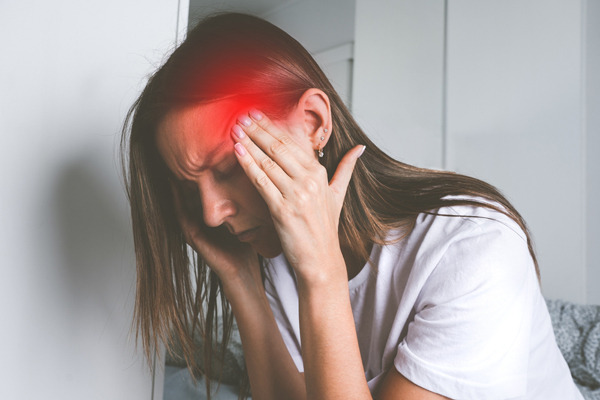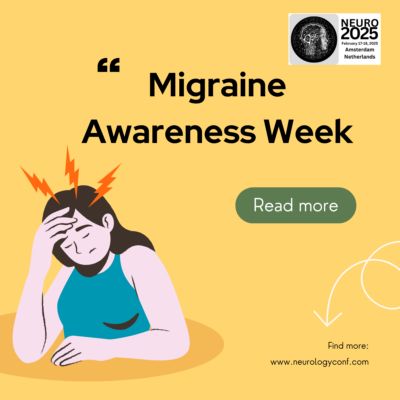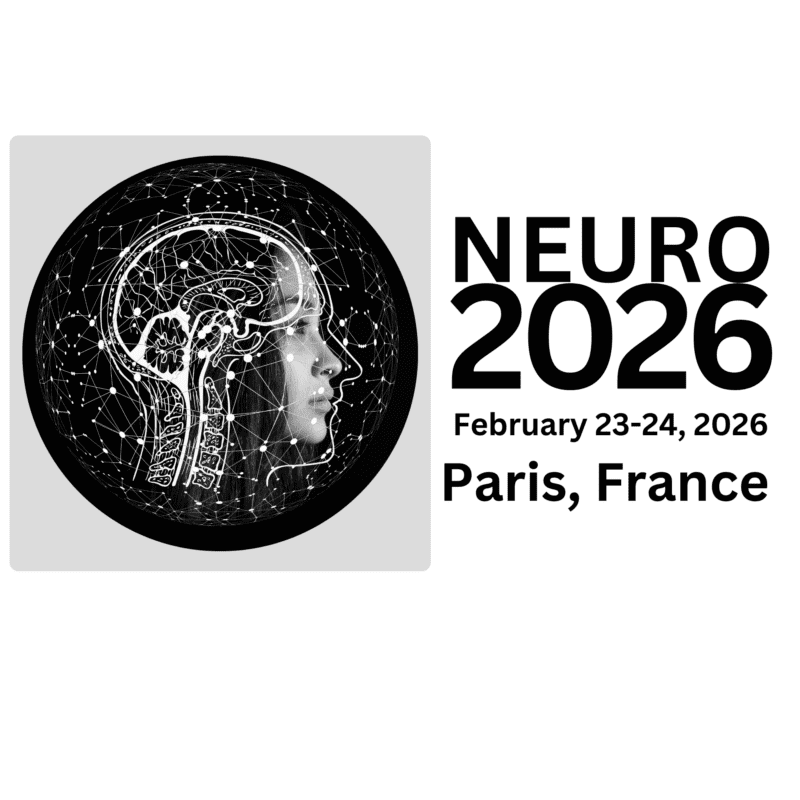Understanding Migraine in Europe: Management Strategies and New Research Insights
Migraine is a prevalent and often debilitating neurological condition affecting millions of individuals across Europe. Characterized by recurrent, severe headaches that can be accompanied by nausea, vomiting, and heightened sensitivity to light and sound, migraines pose significant challenges not only to those affected but also to healthcare systems. As we observe Migraine Awareness Week, it is crucial to shed light on the latest research, effective management strategies, and the importance of raising awareness about this condition.
What is Migraine?
Migraine is a complex neurological disorder recognized as the leading cause of years lived with disability among individuals under 50. It impacts over 1 billion people globally, resulting in significant socioeconomic consequences.
While migraines are three times more prevalent in women than in men, they can be equally debilitating for both genders. The condition typically begins around puberty, primarily affecting adults during their productive years, though it can also occur in children and the elderly.
Chronic migraine affects about 2% of the global population. It is the second most common cause of short-term absence among non-manual workers and ranks among the top five reasons for emergency department visits.
Recent years have seen significant advancements in both acute and preventive treatments for migraines.

The Burden of Migraine in Europe
Recent statistics indicate that approximately 12% of the European population suffers from migraines, with a higher prevalence in women than in men. The socio-economic impact of migraines is substantial, leading to lost productivity, increased healthcare costs, and diminished quality of life. Understanding the complexity of migraines and their triggers is essential for effective management and treatment.
New Research and Advancements in Treatment
In recent years, there has been significant progress in migraine research, leading to innovative treatments and improved management strategies. Notably, the development of calcitonin gene-related peptide (CGRP) inhibitors represents a breakthrough in migraine therapy. These medications target the molecular pathways involved in migraine attacks, providing a new avenue for prevention and relief.
Ongoing clinical trials continue to explore various treatment modalities, including neuromodulation techniques, such as transcranial magnetic stimulation (TMS) and neurostimulation devices. These methods aim to interrupt the pain signaling pathways and offer alternatives to traditional pharmacological approaches.
Additionally, studies focusing on lifestyle interventions, such as dietary modifications, exercise, and stress management, have shown promise in reducing the frequency and severity of migraine attacks. Personalizing treatment plans based on individual triggers and responses can lead to more effective management.

Migraine Awareness Week: Raising Awareness and Advocacy
Migraine Awareness Week, which takes place annually, is a pivotal time to educate the public about migraines, promote understanding, and advocate for better healthcare policies. This year, the focus is on the importance of recognizing the impact of migraines on daily life and the need for greater support for individuals affected by this condition.
The Migraine Association of Europe plays a vital role in raising awareness, providing resources, and advocating for improved treatment options for migraine sufferers. Through various initiatives, the association aims to enhance understanding of migraines and their treatment, empowering individuals to seek help and manage their condition effectively.
The 3rd European Congress of Neurology and Neuropsychiatry
As part of the ongoing effort to advance knowledge and treatment of neurological conditions, the upcoming 3rd European Congress of Neurology and Neuropsychiatry on February 17-18, 2025, in Amsterdam will provide a platform for experts to discuss the latest research in migraines and other neurological disorders. The Neurology Conference 2025 will feature keynote speakers, workshops, and interactive sessions focused on the theme: “Advances in Neurology and Neuropsychiatry: Bridging Gaps for Future Innovations.”
This congress presents a valuable opportunity for healthcare professionals, researchers, and advocates to collaborate, share insights, and drive forward the conversation around migraine management and treatment.

Conclusion
With ongoing research, advancements in treatment, and increased awareness, we can make significant strides in managing migraines effectively. By working together—healthcare professionals, researchers, and advocacy organizations like the Migraine Association of Europe—we can improve the quality of life for those affected by this condition. As Migraine Awareness Week unfolds, let us continue to raise awareness, share knowledge, and advocate for better resources and support for migraine sufferers across Europe.
For more information about the Neurology conference and how to participate, please visit www.neurologyconf.com
Migraine associations and related organizations across Europe that focus on migraine awareness, research, and support:
- Migraine Association of Europe (MAE) – A European-wide organization dedicated to improving the lives of people affected by migraines.
- British Migraine Association (BMA) – A UK-based charity that provides information and support for people with migraines.
- Migraine Trust – A UK charity focused on providing support and funding research into migraine and headache disorders.
- Association of Migraine Disorders (AMD) – An organization that promotes awareness and education about migraine.
- Italian Headache Society (Società Italiana per lo Studio delle Cefalee, SISC) – Focused on headache research and education in Italy.
- German Migraine and Headache Society (Deutsche Migräne- und Kopfschmerzgesellschaft e.V., DMKG) – A professional association for researchers and healthcare professionals in Germany.
- French Society of Neurology (Société Française de Neurologie) – Engages in research and education on various neurological conditions, including migraines.
- Swiss Headache Society (Schweizerische Kopfschmerzgesellschaft) – Provides support and information on headaches and migraines in Switzerland.
- Norwegian Headache Society (Norsk Hodepineselskap) – A society that focuses on headache research and patient support in Norway.
- Headache Alliance of Ireland (HAI) – Works to provide support and information for those affected by headaches and migraines in Ireland.
These organizations play a crucial role in raising awareness, providing resources, and advocating for better treatment options for individuals affected by migraines.

